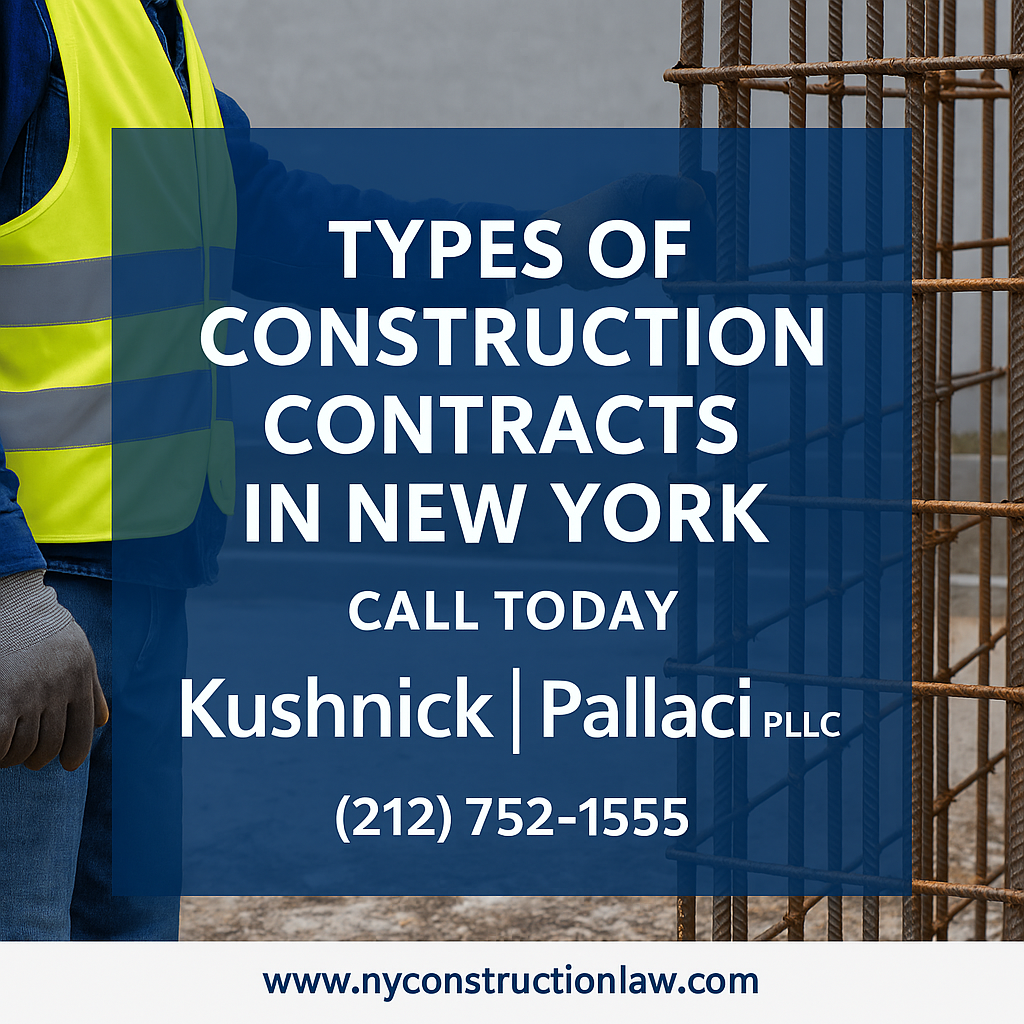Construction contracts under New York law are usually distinguishable by the methods of determining the final contract price. To encourage parties to meet the goal of quality construction at the lowest possible price in order to make a fair profit, several different types of contracts have evolved.
One form of fixed priced contract is a lump sum contract, a contract in which the contractor agrees to do specified construction for a price set forth in the contract. The only changes that are allowed to the fixed price of the contract are changes for extras or change orders. Lump sum contracts are generally used and required in public works contracts. In a lump sum contract, bids are requested in completed plans and specifications, consequently allowing for an easy comparison of bid prices between competing contractors.
Another form of fixed price contract is a unit price contract, which sets forth the price for each unit delivered to the contractor. The unit may be specific material, such as a heating system, or even a modular building or cubic yard of excavation. A unit price contract may specify a particular number of units or may indicate that the supplier will provide all the units needed or a specified percentage of needed units to complete the work. Therefore, anything that can be measured in units can be the basis for a unit price contract. Unit price contracts are most popular when used between contractors and subcontractors in heavy construction and highway contracts.
Another form of contract is the cost-plus contract, which the contractor is paid its actual cost of the construction plus a specified mark-up to cover overhead and profit. The contract will define costs and including materials, labor, and subcontractors and suppliers. The contract should exclude actual overhead expenses from the definition of cost, and to the total of costs and the overhead is then added a specified percentage of profit. Typically, a cost-plus contract will provide for 10% overhead and 5% profit. In some cases, a cost-plus fixed fee contract may be used, which the contractor is paid its actual cost plus a fixed fee which is set in advance, and may not specify that costs include a set of daily rate for overhead. In a slight variation that used an incentive fee, the contract will specify a time and quality criteria, and if the contractor meets those criteria it will be paid a cost-plus set fee.
Finally, a guaranteed maximum price contract may be used, which the owner an contractor agree that the project will not cost the owner more than a set price, the guaranteed maximum. The contractor will be paid on a cost-plus fixed fee or percentage of cost basis, but in no event may it exceed the maximum price. A savings clause may be used that provides that id the project costs the owner less than the maximum, the owner and contractor will split the difference between cost and maximum price.

